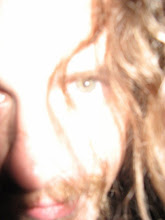
My mother was and is a great lover of books. Her bed side table generally had about 20 or so volumes stacked up awaiting her consideration. On the various bookcases in the halls were many more, stacked neatly like paper bricks. In dark hues, adorned with gold lettering, they fascinated me as a child, coyly promising some magical enigmatic quality called knowledge or culture or some other totem. She had brought these either as a mature student before I was born or in the seemly constant parade of car boots sales and clearance auctions that made up the 1980s for me. They were as part of my Childhood as my sisters or my cat.
As I grew, in those neat and organised piles, I found Marx, Sartre, Dostoevsky, Rousseau, weird little trinkets like Field Marshall Slim's account of the Burma Campaign or David Maland's 'Europe in the Seventeenth Century' . Each brick became like a hand grenade, breaking from its cover, flinging its contents forcibly in the room and my wee head.
The most important finds were 'The First Circle' and volume one of 'The Gulag Archipelago' when I was 16 or so. Solzhenitsyn provided in these two books a personal and upfront challenge to me and indeed the world. He broke the tacit deceit of the Soviet regime and its apologists, he broke open a window in a history being erased by time and coerced ignorance and shouted the truth from the rooftops. As a young, precious little doctrinal Leninist, it snapped me in two. It held together the rage of the old testament with the clarity and wit of a scientist probing a unexplored phenomena. I had to go back to first principles under the intensity of his ringing probation and rethink. I will always be indebted for that
One of the most remarkable talents Solzhenitsyn had was to evoke a time and place that is now very distance and foreign, especially to a western audience. The density of his work, in terms of ideas, characterisation and historical detail is transporting. When reading the knots of 'August 1914', you are back into the debates of the third Duma and the rush to war. In 'The First Circle', you feel the breadth and conversely the interrelation of Stalin's Moscow. Cancer Ward is the only book that has brought me to tears as Oleg, now healthy but penniless comes out of the hospital. Whilst he couldn't write female characters to save his life (a common male condition), he still used the 19th century novelistic form like a broadsword and a rapier.
For his courage and intellectual vigour, he was a fascinatingly flawed character. He had willing swapped the hegemony of Bolshevik Communism for Nationalist Orthodox Christianity and the fallacies of the worst of the Slavo-philes. His historical reinterpretations of paradigm about the nature of the tsarist regime, the revolutions and the Bolshevik party were mixed by great insight and blinded by partisan bias of the most dogmatic type. His criticisms of the west as decadent seemed unworthy of his great mind and kind of hypocritical given the Stalinist conformity he had escaped. Further his failure to engage with the specific nature of the Holocaust and his defence of the slavo-phile narrative of the Jews in Russia spoke of an unreconstructed base level of anti-Semeitsm. Even more baffling was his late endorsement of that son of the NVKD, Vladimir Putin as the hope for Russia. Russia has never had the chance to suffer from a surplus of democracy, whilst the history of its strongmen is, to put it mildly, mixed
Yet for all his contradictions and flaws, he remains a hero of mine and a beloved, talented and passionate writer.
I will miss you Alexander


3 comments:
well, I read the archipel od gulag when I was 20, and there is one details that I never forgot, that is how in a certain period detainees were being transported in vans desguised as milk or bread transport.
the book impressed me very much, but probably not as much as you because I was never close to leninism. I had followed very closely the changes in the soviet union since chernobil, as well as in eastern europe, at it happened that i discovered sakarov before soljnitsine.
however, when I came to understand his nationalist position, and particularly his admiration for putin, I couldn't avoid a feeling of betrayal.
so, in the end i can say i learned a lot from him, and what I leared became very useful for me to understand nationalist dissidents in jugoslavia.
it always bothers me when people who felt and denounced opression are willing to support opressors as long as these opressors only opress others, not them.
Alas, tis a common trait.
For some reason, these comments disappeared
By Sarah Franco 6/8/08 12:52
well, I read the archipel od gulag when I was 20, and there is one details that I never forgot, that is how in a certain period detainees were being transported in vans desguised as milk or bread transport.
the book impressed me very much, but probably not as much as you because I was never close to leninism. I had followed very closely the changes in the soviet union since chernobil, as well as in eastern europe, at it happened that i discovered sakarov before soljnitsine.
however, when I came to understand his nationalist position, and particularly his admiration for putin, I couldn't avoid a feeling of betrayal.
so, in the end i can say i learned a lot from him, and what I leared became very useful for me to understand nationalist dissidents in jugoslavia.
it always bothers me when people who felt and denounced opression are willing to support opressors as long as these opressors only opress others, not them.
By Socialrepublican 6/8/08 13:54
Alas, tis a common trait.
Post a Comment